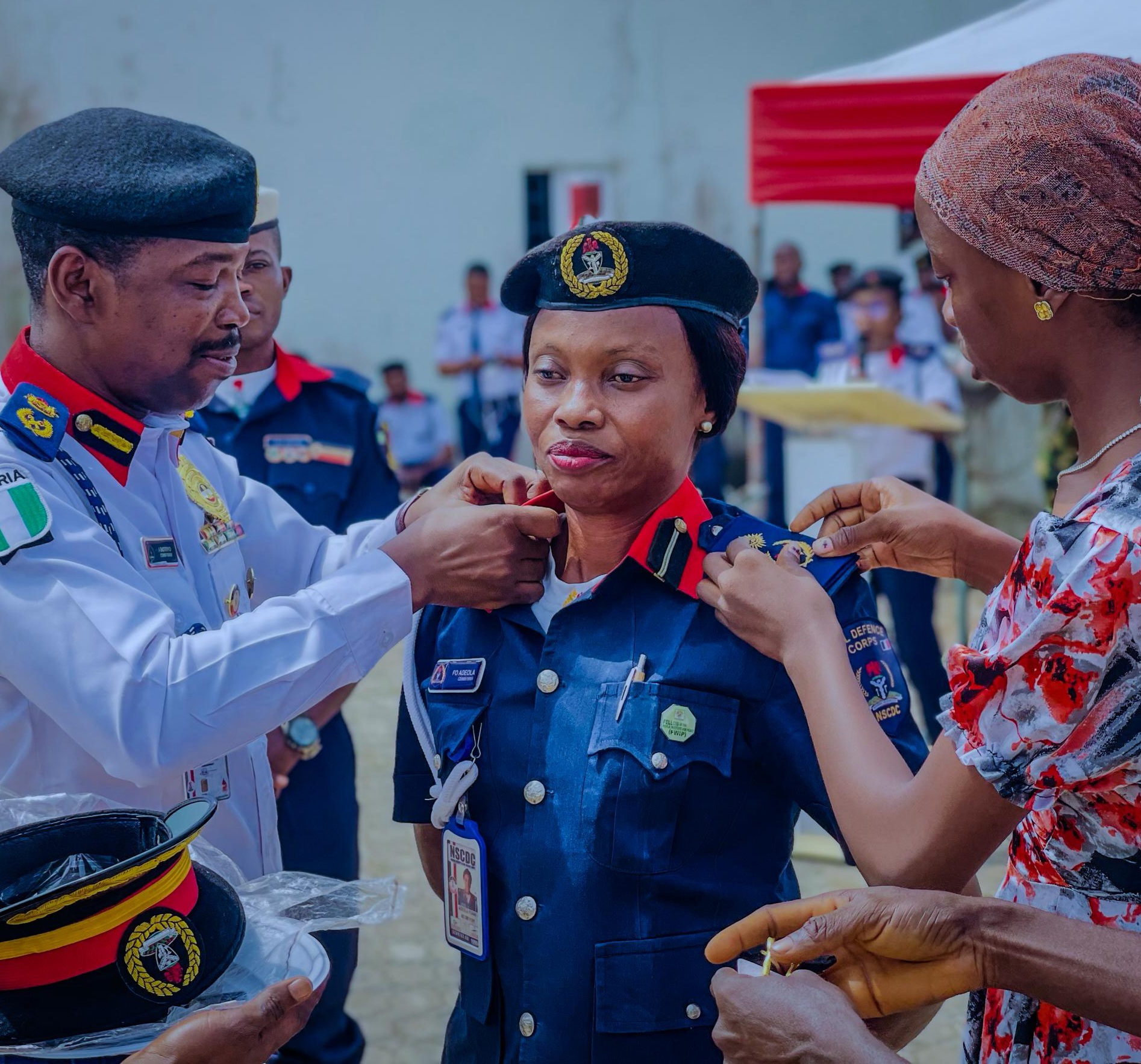
By Isiaka Mustapha, CEO/Editor-In-Chief, People’s Security Monitor
In a symbolic and strategic show of commitment to food security and rural peace, the Nigeria Security and Civil Defence Corps (NSCDC) Agro
Rangers Unit held a colorful passing out parade in Jos, Plateau State.
The event, which took place at the NSCDC State Command Headquarters, was more than a ceremonial farewell for newly trained operatives; it marked a crucial moment in Plateau State’s growing effort to protect
farmlands, farmers, and food supply chains from insecurity.
The Agro Rangers, a specialized unit within the NSCDC, were conceived to bridge the widening security gap between farmers and criminal
elements such as bandits, herders, and cattle rustlers who have repeatedly disrupted agricultural activities across Nigeria. As the
nation leans heavily on agriculture to diversify its economy and ensure food sufficiency, securing farming communities has never been
more important.
The passing out parade in Jos showcased the physical, mental, and tactical preparedness of the newly inducted Agro Rangers. With precision drills, parade formations, and brief tactical displays, the operatives demonstrated readiness to confront threats that target agricultural communities. Their training emphasized intelligence gathering, non-lethal engagement, rural patrol operations, conflict mediation, and rapid response tactics, all tailored to the complex
realities of farming regions in Plateau and beyond.
What made the event particularly remarkable was the presence and support of the Plateau State Governor, Barrister Caleb Mutfwang, who used the occasion to donate a fleet of motorcycles to the NSCDC. The gesture, warmly received by the Corps, is expected to significantly enhance the mobility, responsiveness, and surveillance capacity of the Agro Rangers, particularly in hard-to-reach rural communities scattered across the state’s rugged terrain.
Governor Caleb Mutfwang, at the event, reiterated his administration’s commitment to collaborative security and agricultural resilience. He
noted that the security of farmers is directly linked to food security, economic stability, and rural development. According to him,
the donation of motorcycles was not a favour, but a strategic investment in the state’s peace architecture.
NSCDC commandant General, Dr. Ahmed Audi, expressed profound appreciation for the state government’s timely intervention and
consistent support for the Corps. He described the Agro Rangers as vital security layer in the state’s agrarian landscape and assured the
public that the newly trained operatives would be deployed to volatile farming areas immediately. He also stressed that the Corps would
continue to build strong partnerships with local communities, traditional rulers, and sister security agencies to reduce farmer-herder conflicts and attacks on farmlands.
The passing out parade comes at a time when parts of Plateau and other agrarian states have experienced waves of violence that disrupted food production and displaced farming families. With the induction of new Agro Rangers and the support from the state government, hopes are high that security in the hinterlands will improve, thereby encouraging displaced farmers to return to their lands and resume cultivation.
Beyond the security implications, the event in Jos also signaled a renewed sense of civil-military synergy and grassroots-oriented
policing. The Agro Rangers represent a model of community-driven security professionally trained operatives who understand both the
terrain and the tension points in rural areas. Their presence is expected to de-escalate flashpoints, build trust, and serve as deterrence to those who threaten agricultural livelihoods.
As Nigeria confronts multiple layers of insecurity and economic pressure, strategic investments like this, combining manpower, mobility, and inter-agency cooperation offer a glimmer of hope. With every passing out parade, the NSCDC Agro Rangers are not just expanding their numbers; they are strengthening a vital frontline in
the battle for food security and national stability.






